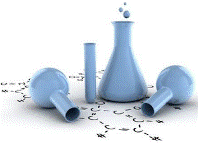Chemical and Biomolecular Engineering, Department of

Department of Chemical and Biomolecular Engineering: Faculty Publications
Engineering protein processing of the mammary gland to produce abundant hemophilia B therapy in milk
Date of this Version
2015
Document Type
Article
Citation
Scientific Reports, 5:14176
Abstract
Both the low animal cell density of bioreactors and their ability to post-translationally process recombinant factor IX (rFIX) limit hemophilia B therapy to transgenic pigs to make rFIX in milk at about 3,000-fold higher output than provided by industrial bioreactors. However, this resulted in incomplete γ-carboxylation and propeptide cleavage where both processes are transmembrane mediated. We then bioengineered the co-expression of truncated, soluble human furin (rFurin) with pro-rFIX at a favorable enzyme to substrate ratio. This resulted in the complete conversion of pro-rFIX to rFIX while yielding a normal lactation. Importantly, these high levels of propeptide processing by soluble rFurin did not preempt γ-carboxylation in the ER and therefore was compartmentalized to the Trans-Golgi Network (TGN) and also to milk. The Golgi specific engineering demonstrated here segues the ER targeted enhancement of γ-carboxylation needed to biomanufacture coagulation proteins like rFIX using transgenic livestock.


Comments
This work is licensed under a Creative Commons Attribution 4.0 International License.